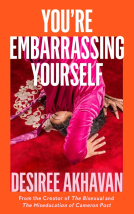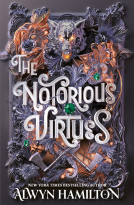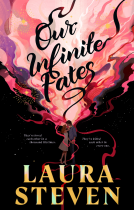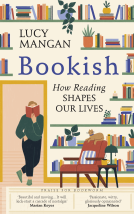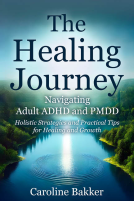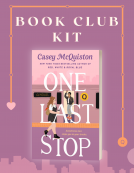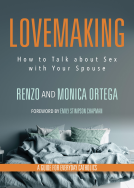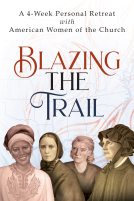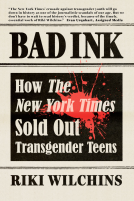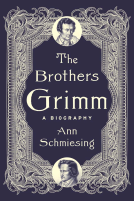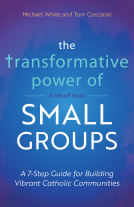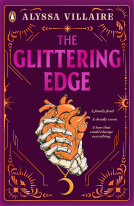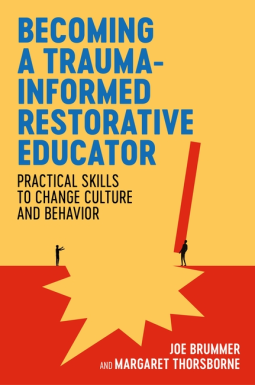
Becoming a Trauma-informed Restorative Educator
Practical Skills to Change Culture and Behavior
by Joe Brummer; Margaret Thorsborne
This title was previously available on NetGalley and is now archived.
Send NetGalley books directly to your Kindle or Kindle app
1
To read on a Kindle or Kindle app, please add kindle@netgalley.com as an approved email address to receive files in your Amazon account. Click here for step-by-step instructions.
2
Also find your Kindle email address within your Amazon account, and enter it here.
Pub Date 21 Jun 2024 | Archive Date 12 Jul 2024
Talking about this book? Use #BecomingaTraumainformedRestorativeEducator #NetGalley. More hashtag tips!
Description
Maybe you have heard the terms 'trauma-informed' and 'restorative' - but how do you go about becoming a trauma-informed, restorative educator?
This practical book outlines the values, ideas and neuroscience behind trauma-informed restorative practice and its proven effectiveness. It clearly explains key theories relating to shame, trauma and your autonomic nervous system, and explains how to apply this knowledge in practice. Examples and stories of restorative practice feature throughout to inspire and emulate, as do practical protocols, tools and systems to develop your skills as a trauma-informed educator. Critically, it also explains the personal and professional qualities you need to nurture to truly engage in trauma-informed, restorative practice, with reflection points to aid learning and self-development.
Read this book and take your first steps to creating a trauma-informed, restorative classroom - even if your school isn't doing it!
Available Editions
| EDITION | Other Format |
| ISBN | 9781839975684 |
| PRICE | £27.99 (GBP) |
| PAGES | 240 |
Available on NetGalley
Featured Reviews
This practical guide offers a comprehensive approach to becoming a trauma-informed, restorative educator. Delving into the values, ideas, and neuroscience behind trauma-informed restorative practices, the book provides a clear understanding of key theories related to shame, trauma, and the autonomic nervous system. Through practical examples, stories, and protocols, it inspires and guides educators in applying this knowledge effectively.
The book not only outlines the tools and systems needed for trauma-informed restorative practice but also emphasizes the personal and professional qualities essential for successful implementation. Reflection points throughout the book encourage self-development and reinforce the importance of nurturing specific qualities for engaging in trauma-informed education.
Whether your school has embraced trauma-informed practices or not, this guide equips educators with the knowledge and skills to create a trauma-informed, restorative classroom. Take your first steps towards a more compassionate and supportive educational environment with this valuable resource.
 Joanie W, Reviewer
Joanie W, Reviewer
Topics covered in Becoming a Trauma-informed Restorative Educator :
why and how we experience trauma, the neuroscience behind behavior, regulation and co-regulation, adversity, resilience/dosing/spacing, putting theories and principles into action, shame that comes with trauma, and finally a call to action to become a trauma-informed restorative teacher.
I think this book was a good read for its intended audience (teachers), but it would also be good for parents and individuals who have dealt with trauma. I really enjoyed the chapter on shame and dealing with that. Will be rereading this and making notes on how to implement in my personal life!
 Daniela T, Educator
Daniela T, Educator
The book a comprehensive and practical guide that successfully bridges theory and practice. The book delves into the foundational values and ideas that underpin trauma-informed restorative practices, bolstered by insights from neuroscience to demonstrate their effectiveness.
One of the book's strengths is its clarity in explaining complex concepts. It breaks down key theories related to shame, trauma, and the autonomic nervous system in an accessible manner. This makes the content not only understandable for educators new to these ideas but also valuable for those seeking to deepen their knowledge. The explanations of how the brain works and how our nervous system responds to trauma are particularly insightful and provide a solid foundation for understanding the importance of trauma-informed practices.
I especially appreciated the practical strategies outlined in the book, such as improving questioning skills. These strategies are essential for creating a supportive and healing educational environment. The step-by-step guidance on how to ask questions that foster a restorative dialogue is both practical and easy to implement, enhancing educators' ability to engage with students effectively.
The inclusion of real-life examples and stories of restorative practice adds a relatable and inspirational dimension to the theoretical framework. These narratives help educators visualize how to apply trauma-informed restorative practices in their own settings. Furthermore, the book is rich with practical protocols, tools, and systems designed to develop the reader's skills and confidence in implementing these practices.
A noteworthy aspect of the book is its emphasis on the personal and professional qualities necessary for engaging in trauma-informed, restorative practice. It encourages educators to reflect on their own experiences and growth, which is crucial for authentic engagement with students. The reflection points scattered throughout the book are particularly helpful, as they promote ongoing self-assessment and development.
Overall, this book serves as an invaluable resource for educators aiming to foster a supportive and healing educational environment. Its blend of theoretical knowledge, practical advice, and reflective exercises makes it an essential read for anyone committed to becoming a trauma-informed, restorative educator. I already suggested it to my colleagues and school.
 Sara M, Reviewer
Sara M, Reviewer
I usually teach in universities and this book might be more applicable to schools, but I've found I've used what I've learned when working with practitioners who do work with young people.
The neuro science is useful for explaining the mechanisms of how trauma impacts on chikdren and the exploration of values behind the practice is useful and could be helpful in a higher education teaching setting to help learners to explore the importance of being trauma-informed.
This book is FANTASTIC! I only wish I had a paper copy so I could write all the notes and a-ha moments I'm having as I read it. I've been working in public education for 12 years, the last two have been spent as a behavior coach working with teachers to help them with management and culture building in their classrooms. What I wouldn't give to go back and have this book when I started this journey...it's a lot and if you know public ed, it's not like teachers have "a lot". I appreciate the actionable nature of the book and how the information does pass judgement, but rather allows the reader to examine their own biases and then move forward from them. Reading this book has been an eye opening experience for me, even as someone who has used restorative practices as a classroom teacher and instructional coach; I realize that I have more to learn and further to go in my journey to become a more trauma informed and restorative educator.
I received an advance review copy for free, and I am leaving this review voluntarily. I picked it up as someone who spent time studying trauma as part of my degree to further deepen my knowledge base (to hopefully use it going into postgrad) and this book was great. It incorporates many of the bits I already learned and more with ways to apply it to education and references provided and collated well at the end.
This is a must read for all educators. Many times we think of trauma being a huge thing but trauma can vary by child. This book does a great job of outlining how we can better serve students. I'd love to use this as a book study for my teachers.
 Jesaka L, Educator
Jesaka L, Educator
Most of the books I've read from Jessica Kingsley Publishers have been well researched and presented, making for great resources. BECOMING A TRAUMA-INFORMED RESTORATIVE EDUCATOR is no exception; it is one of the best books I've read from this publisher. I have studied and use many of these concepts before/currently yet still found plenty in this book to help me renew and deepen my practices. I have a copy on order so that I can read it again and write all of my notes in the margins. I highly recommend this for teachers looking to learn about being a trauma-informed restorative educator for the first time as well as someone wanting to further their skills.
 Librarian 976690
Librarian 976690
In today's educational landscape, it is imperative that we keep in mind all the facets that make up a child's learning environment. I recommend this book to all members of school staff; or anyone working with children. Very informative and well written.
A really useful read for anyone in school leadership who wishes to make their school and this more nurturing and trauma informed. Recommend it
Becoming a Trauma-informed Restorative Educator: Practical Skills to Change Culture and Behavior brings together important concepts from experts in the field all in one place for any person supporting youth in our schools. Reviewing historical paradigms of behavior and moving into the new lens in which to frame human behavior and emotions, this book creates and easy and accessible space for all to learn. It takes high level concepts such as Dr. Bruce Perry's model and breaks it down into accessible parts and quick takeaways that can be immediately implemented. The reflection questions at the end of each chapter make an east way to check in with yourself and a handy addition to the book itself. No matter your role in the school system, nor your time of service, this book is a useful tool to have in your tool belt. #BecomingaTraumainformedRestorativeEducator #NetGalley
I was excited to receive a copy of this to read and review. I’ve been in education for a decade, but I am always looking for ways to improve the experience in the classroom. This book is a wealth of information. I enjoyed how many of the chapters end with a summary of key points and review questions to encourage further thought. I’m looking forward to being able to apply this knowledge.
Readers who liked this book also liked:
Michael White and Tom Corcoran
Christian, Religion & Spirituality
